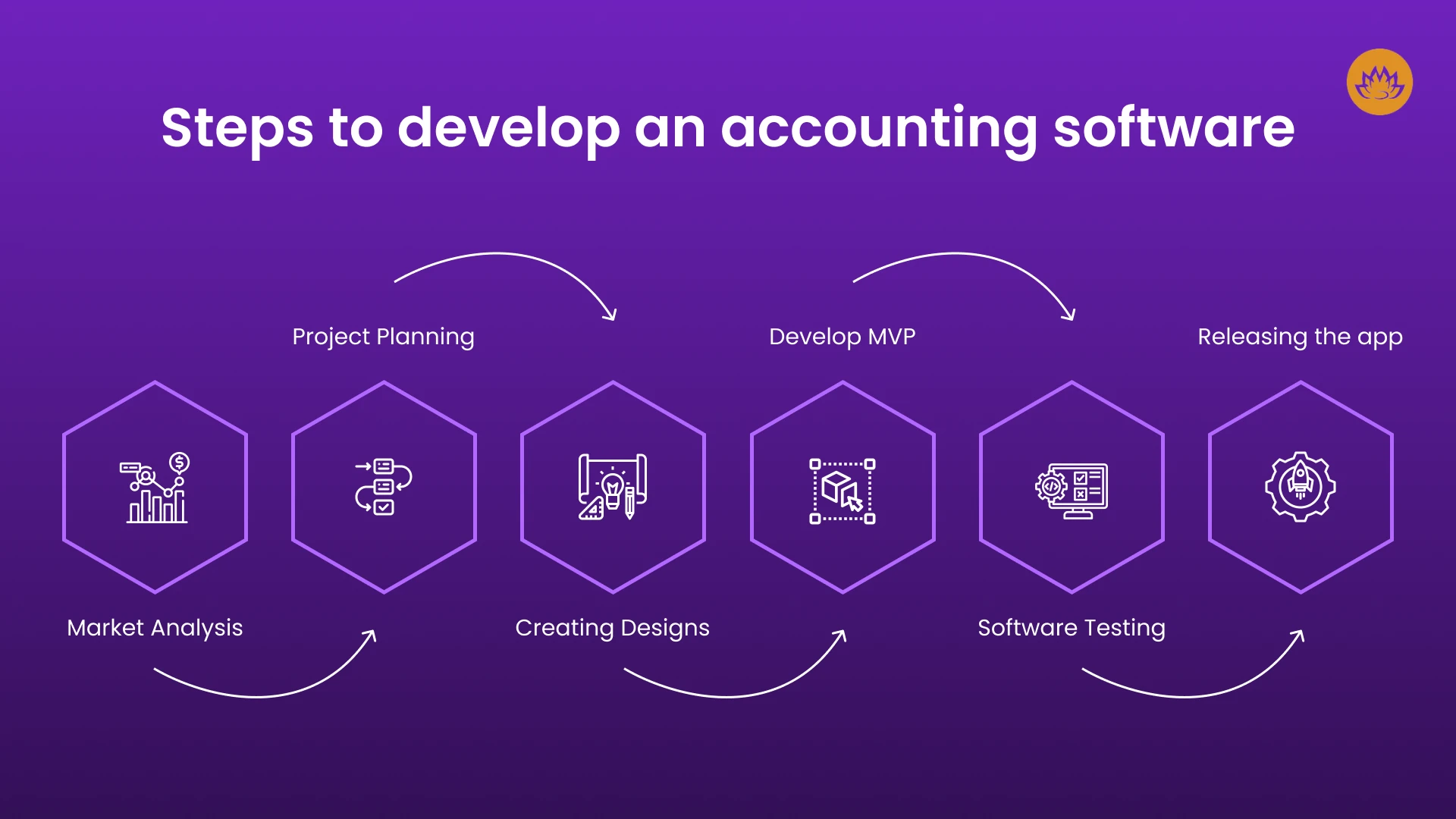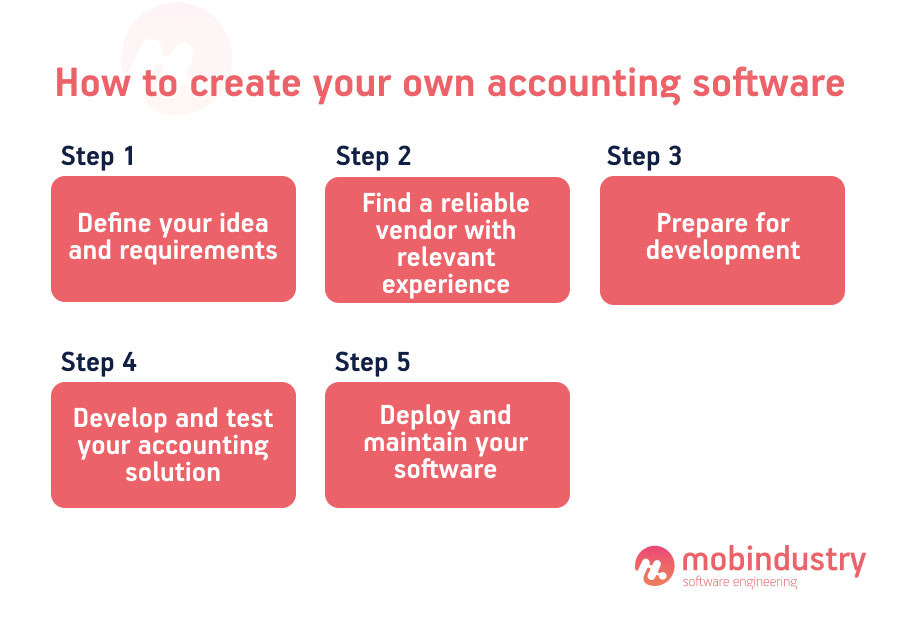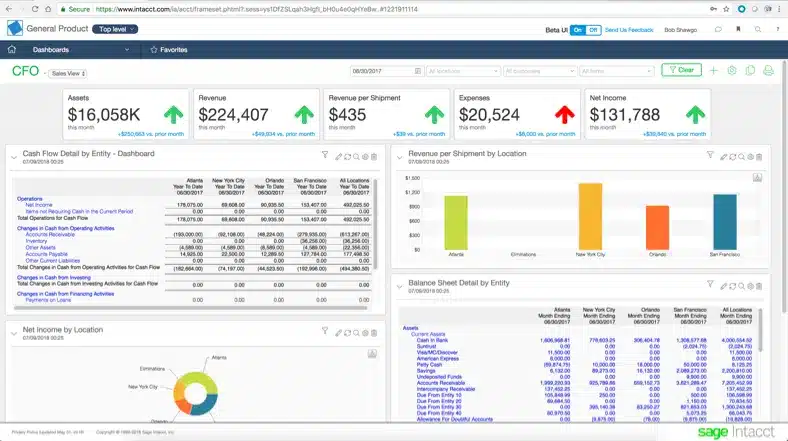Yes, you can get into software as an accountant. Accountants have skills that are valuable in the software industry.
The world of software isn’t just for programmers. Accountants bring a unique perspective that is highly sought after in tech. Your analytical skills, attention to detail, and understanding of financial systems can be a huge asset. Companies need professionals who understand both finance and technology.
Transitioning into software may seem daunting, but many accountants have successfully made the leap. With the right approach, you can too. This blog will explore how accountants can enter the software industry, the skills needed, and the potential career paths available. Stay tuned to learn how your accounting background can open new doors in the tech world.

Credit: www.whitelotuscorporation.com
Introduction To Career Transition
Accountants often have strong problem-solving skills. They deal with numbers and data daily. These skills are valuable in software jobs. Software roles need analytical thinking. This is a skill many accountants already have. Accountants also use technology in their work. They may feel comfortable with software tools. This makes the transition easier.
Switching to software can bring new opportunities. Software jobs often offer higher salaries. There is a growing demand for tech skills. This means more job security. Working in software can also be exciting. The field is always changing. There is always something new to learn. Many people find this rewarding.
:max_bytes(150000):strip_icc()/Accounting-software-4202206-primary-final-cd88d4c4a5cd40c6b848c793a6de496d.png)
Credit: www.investopedia.com
Transferable Skills
Accountants use analytical thinking to solve problems. This skill is vital in software. You break down complex tasks. You find patterns and solutions. These help in coding and debugging. Both fields need critical thinking and problem-solving.
Accountants pay close attention to details. This is crucial in software. Small errors can cause big issues. Spotting mistakes early saves time. It ensures accuracy and quality. Both fields value precision. They demand a keen eye for detail.
Learning New Technologies
Accountants can learn new skills to enter the software field. Understanding programming languages is key. Start with basic languages like Python or JavaScript. These are beginner-friendly and widely used.
Learning a programming language opens many doors. Python is popular for its simple syntax. JavaScript is essential for web development. Both have large communities for support. Practice coding every day to improve.
Software tools are also important. Familiarize yourself with tools like Git for version control. Learn about databases such as SQL. These tools help in managing and storing data. They are crucial for software development.
Educational Resources
Transitioning from accounting to software is possible with the right resources. Many accountants find success through coding bootcamps and online courses. These tools help build the necessary technical skills.
Online Courses
Many online courses teach coding and software skills. Platforms like Coursera, Udemy, and edX offer beginner to advanced courses. These courses cover programming languages, software development, and more. Some courses are free, while others require payment. You can learn at your own pace. Certification is often available after completing the course. These certifications can be added to your resume.
Coding Bootcamps
Coding bootcamps are intensive programs that teach coding in a short time. They focus on practical skills needed for software jobs. Bootcamps can last from a few weeks to several months. Many bootcamps offer job placement assistance. They are a good way to learn quickly and get into the tech industry. Some well-known bootcamps are General Assembly, Flatiron School, and Le Wagon.
Networking And Mentorship
Joining professional networks helps in many ways. It connects you with like-minded people. You can learn new skills and get tips. These networks often host events. Attend these events to meet new people. Always bring business cards. Share your experiences and listen to others. This can open doors to new opportunities. It can also help you stay updated in your field.
Finding a mentor is very helpful. Look for someone who has made the switch to software. They can give you advice and guidance. Ask for their time politely. Be clear about what you want to learn. A mentor can offer you tips on making the switch. They can also share their own experiences. This can help you avoid common mistakes. Keep in touch with your mentor regularly. This will help you grow faster in your new career.
Building A Portfolio
Creating personal projects can show your skills. Start with small projects. Build a simple calculator or a to-do list app. Use languages like Python or JavaScript. Share your code on GitHub. This helps others see your work. Write about your projects on a blog or LinkedIn. Explain what you did and why. Employers look for hands-on experience. Personal projects prove you have it.
Contributing to open source is valuable. Find projects that need help. Look for issues marked “good first issue” on GitHub. Fixing bugs is a good start. Add features to existing projects. This shows your problem-solving skills. Join communities around these projects. Learn from others and get feedback. Your contributions can impress employers. They see you can work with real code and teams.
Job Search Strategies
Highlight transferable skills like problem-solving and analytical thinking. Focus on software tools you have used, such as Excel or QuickBooks. Mention any coding courses or certifications. Include projects where you used software to improve processes. Avoid jargon. Keep it simple.
Research the company’s tech stack. Understand the basics of coding. Practice common interview questions. Showcase your problem-solving skills. Be ready to explain how your accounting experience helps in software roles. Keep answers short and clear. Stay calm and confident.
Success Stories
Many accountants have moved into software roles. One story is of Jane. She worked as an accountant for 10 years. Jane then learned coding at night. She took online courses and read many books. Soon, she landed a job as a software developer. Her accounting skills helped her understand the business side of software.
Another example is John. He was an accountant for a small firm. John realized he enjoyed solving problems. He started learning software skills. He attended bootcamps and joined coding groups. Now, he works at a tech startup. John’s story shows how determination can lead to success.
Accountants have valuable skills. These skills can be used in software. Learning new skills is key. Online courses and bootcamps are helpful. Understanding business is a plus. Determination and hard work pay off. Networking also helps. Joining groups can lead to job offers. Many have done it. You can too.
Challenges And Solutions
Feeling like an imposter is common. Many people doubt themselves. You are not alone. Remember, your skills are valuable. Accountants bring unique strengths to software. Don’t forget your achievements. Celebrate small wins. Seek support from peers. Join groups of similar people. Stay positive. Believe in your ability to learn.
Working and studying is tough. Time management is key. Make a schedule. Set clear goals. Use breaks wisely. Study in short bursts. Prioritize tasks. Focus on one thing at a time. Communicate with your boss. Ask for flexible hours. Seek help from family. Share your plans with them. Stay organized. Keep track of deadlines and progress.
Future Opportunities
Accountants can learn new technologies. Software tools are essential in this field. Many accountants use automation software. This makes their work faster. Learning AI can also help. AI can handle data. It can also find patterns. These skills are valuable. They can open new job opportunities.
Software skills can boost an accountant’s career. These skills are in high demand. Many firms seek tech-savvy accountants. They offer better pay. They also offer promotions. Learning new software keeps you up-to-date. It can make you more competitive. This means more job security. And more career satisfaction.

Credit: www.theforage.com
Frequently Asked Questions
Can An Accountant Switch To Software Development?
Yes, an accountant can switch to software development. Learning coding and software principles is essential. Many online courses and bootcamps cater to career changers.
What Skills Do Accountants Need For Software Roles?
Accountants need coding skills, analytical thinking, and problem-solving abilities. Familiarity with software development tools and methodologies is also important.
How Long Does It Take To Transition?
Transitioning can take several months to a few years. It depends on your dedication, learning pace, and available resources.
Are There Specific Courses For Accountants In Tech?
Yes, there are specific courses. Many online platforms offer coding bootcamps tailored for professionals looking to switch careers.
Conclusion
Transitioning from accounting to software is achievable. Both fields require analytical skills. Leverage your accounting experience in software roles. Keep learning new tech skills. Start with coding basics. Explore software courses online. Network with industry professionals. Seek mentorship for guidance.
Stay persistent and patient. Many have made this switch successfully. You can too. Remember, continuous learning is key. Embrace the challenge and enjoy the journey.



